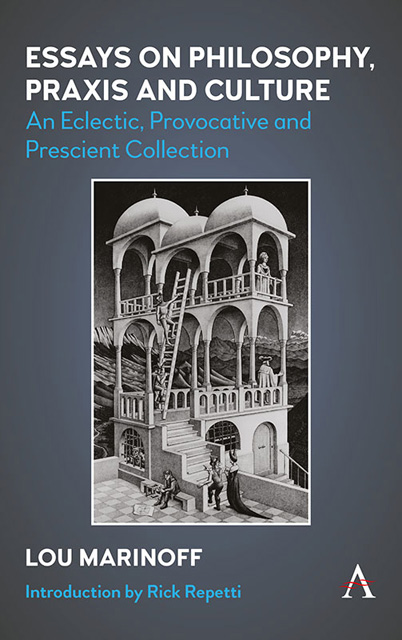Introduction
Published online by Cambridge University Press: 10 January 2023
Summary
1. What and Why?
What is this book about, what does it aspire to achieve, and why does that matter? In this section, I will answer those three questions.
You hold in your hands an engaging, provocative, and quite often very entertaining—I laughed out loud a number of times while reading this—educational tour of the field of philosophical counseling (PC) (among a few other things), by one of the prominent pioneers of the field, but also much more than just a tour of the field. I have disparagingly neologized the sort of pedagogy I see becoming increasingly popular in academia as “edutainment”, that is, the funneling of all educational content into an entertaining format in order to provide extrinsic psychological motivations for learning that used to be intrinsic motivations on the part of students. However, while there are some very entertaining moments in this collection, I am confident in asserting—what the reader will soon discover—that Marinoff rails against the dumbing down of the citizenry through endlessly diminished academic standards. In his case, however, I think it is safe to say his wit, societal criticism, and sense of humor are on a par with the likes of Lenny Bruce, George Carlin, and, more recently, Dave Chappelle, while simultaneously channeling the spirits of the Buddha, Socrates, and, among many other philosophical luminaries, Nietzsche.
In this excellent collection of a representative subset of Lou Marinoff’s voluminous writings on this topic, perhaps merely the tip of the iceberg of his incredibly comprehensive knowledge and depth of wisdom, you will enjoy, and often be enlightened to learn, of Lou’s many provocative encounters with critics of PC from both within and without philosophy, alongside what, to my lights, amounts to the equivalent of the Buddha’s diagnosis, etiology, prognosis, and prescriptions for the currently deprivational state of the human condition, a great deal of which analysis converges with the Buddha’s vision, but which broadens it in many ways. For Marinoff’s philosophical wisdom is not merely formed, by analogy with honey, from the metaphorical pollen gathered only from Buddhist flowers, but also from many different types of philosophical, humanistic, psychological, scientific, historical, and other types of flowers, as each of the essays collected here amply demonstrates.
- Type
- Chapter
- Information
- Essays on Philosophy, Praxis and CultureAn Eclectic, Provocative and Prescient Collection, pp. 1 - 18Publisher: Anthem PressPrint publication year: 2022

